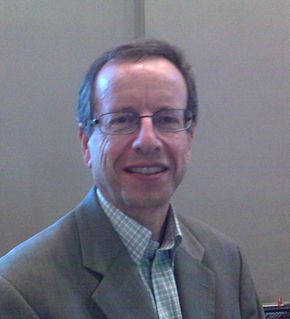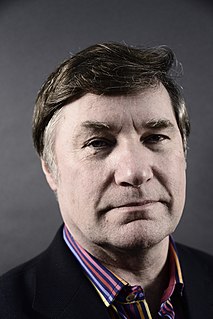A Quote by Michael Schudson
Objectivity, in this sense, means that a person's statements about the world can be trusted if they are submitted to established rules deemed legitimate by a professional community. Facts here are not aspects of the world, but consensually validated statements about it.
Related Quotes
MAKE STATEMENTS also applies to us women: Speak in statements instead of apologetic questions. No one wants to go to a doctor who says, “I’m going to be your surgeon? I’m here to talk to you about your procedure? I was first in my class at Johns Hopkins, so?” Make statements, with your actions and your voice.
There is a certain embarrassment about being a storyteller in these times when stories are considered not quite as satisfying as statements and statements not quite as satisfying as statistics; but in the long run, a people is known, not by its statements or its statistics, but by the stories it tells.
I'm not trying to make political statements ,but theological statements. How can religion get itself so identified with one political party, exclusionary world views, or with "pelvic morality" as the defining issues of the Gospel? Jesus surely didn't. Jesus said to "preach the gospel to all nations", which means we do not just talk to ourselves.
All our surest statements about the nature of the world are mathematical statements, yet we do not know what mathematics "is"... and so we find that we have adapted a religion strikingly similar to many traditional faiths. Change "mathematics" to "God" and little else might seem to change. The problem of human contact with some spiritual realm, of timelessness, of our inability to capture all with language and symbol-all have their counterparts in the quest for the nature of Platonic mathematics.
Is it true or false that Belfast is north of London? That the galaxy is the shape of a fried egg? That Beethoven was a drunkard? That Wellington won the battle of Waterloo? There are various degrees and dimensions of success in making statements: the statements fit the facts always more or less loosely, in different ways on different occasions for different intents and purposes.
I've noticed that there can be a visceral reaction to strong statements about poetry, as if anyone who has an opinion and expresses it is shutting people down. It's funny to see that expressed, and then to go back and read poetic statements by the great poets of the past: they are full of a passionate conviction! It is clearly possible to express strong feelings about poetry while also defending the absolute right of myriad approaches.






































